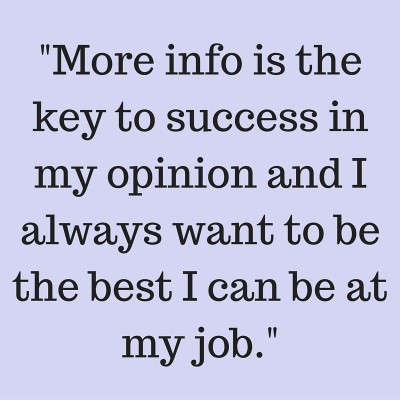Being a live-television broadcast captioner is a wonderful, challenging, ever-changing career that I feel blessed to have been part of for over 15 years now. Each step in my career has been a stepping stone. I knew almost immediately when I began court reporting school that this was going to be a challenge… from the stumbling over the keys to learn the basics, to building up to 225 wpm, and the certification tests at the end. If anything will humble you, it’s testing at 225 wpm and then writing live for Deaf and HOH (hard-of-hearing) kids as I did in the school system and colleges to then building into becoming a broadcast captioner. I knew though that being a captioner was really what I had worked towards all along once I went on air.
Many people are curious and oblivious to not only captioning, but to the work and details “behind the scenes” that it takes to be performance-ready once the program begins. As a captioner, the day begins with reviewing my schedule of shows. I caption quite a bit of news, both local and national, and it’s been beneficial to be exposed to the daily news. I have a greater understanding of what is happening in the world.
I will, before my shows, start my word list for the day on the internet under the main sites for the station I am captioning. In this case, it is often cbc.ca/news. I can see what the top stories of the day are, and search for any specific names and countries, towns, or groups that I believe may be mentioned while I am live captioning. I intentionally over-prep so that when that elusive word or person’s name comes up, I can feel proud of myself for having it ready to rock n’ roll and put up for the viewers to read!
Also, working with a tremendously talented group of captioners, I know how fortunate I am that we share words that come up in specific stories that they’ve captioned in the hour(s) before me, so I can feel as well prepared as possible once I take over the newscast for my timeframe. More info is the key to success, in my opinion, and I always want to be the best I can be at my job. I feel that I have been blessed to be given the skills necessary to do this job, and I don’t want to disappoint myself by doing anything other than the best I can do! That’s not to say that there are difficult days, for sure, and they can be frustrating! Most of the time it’s just an off day when your hands/mind combination cannot find a rhythm and you have more errors, or untranslates, and splitting of strokes. I try, though, to be positive about these tougher days because it’s a great time to add new entries to your dictionary and to see what can be turned from an error to a perfect caption.
Besides the work of actually captioning a program, as a captioner, we have to maintain the equipment necessary in order to carry out our jobs. I have several stenography machines, a spare is necessary in case something is damaged, plus the same for modems that are used to connect through telephone lines to faraway stations. There are several monitors for not only my software for captioning to run on but also for viewing the program live and another for internet searching and office emails and messaging with the office. There are times that you will be pulling double-duty – captioning while quickly trying to reach over to google a key word to pull up a spelling that is elusive! Over the years, as my skill levels have increased, I find this easier to do since nowadays I can often caption while thinking of words to remember to look up and even sometimes what I am planning to cook for dinner!
Since I work from home, I feel I have the best of both the working and home life worlds. I have learned how to balance my time and to separate when I’m not working from the office to give myself the needed mental downtime. I usually head to my craft room to recharge my batteries between captioning programs. Plus, my dogs have a great life with their “mommy” home all day with them!
It’s a wonderful thing to know that you are making a difference to those with hearing loss and to know that you are doing the job that you were meant to always do, and I feel so, so fortunate to be a captioner! Signing off…. at my last speed status for this afternoon at 312 wpm!
This article was written by Susan Hahaj, an experienced broadcast captioner for The Captioning Group.






